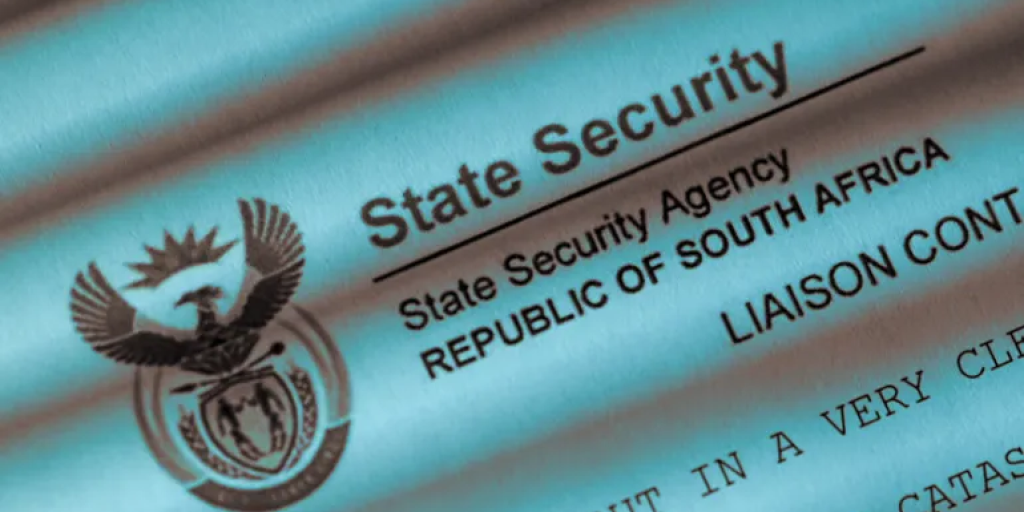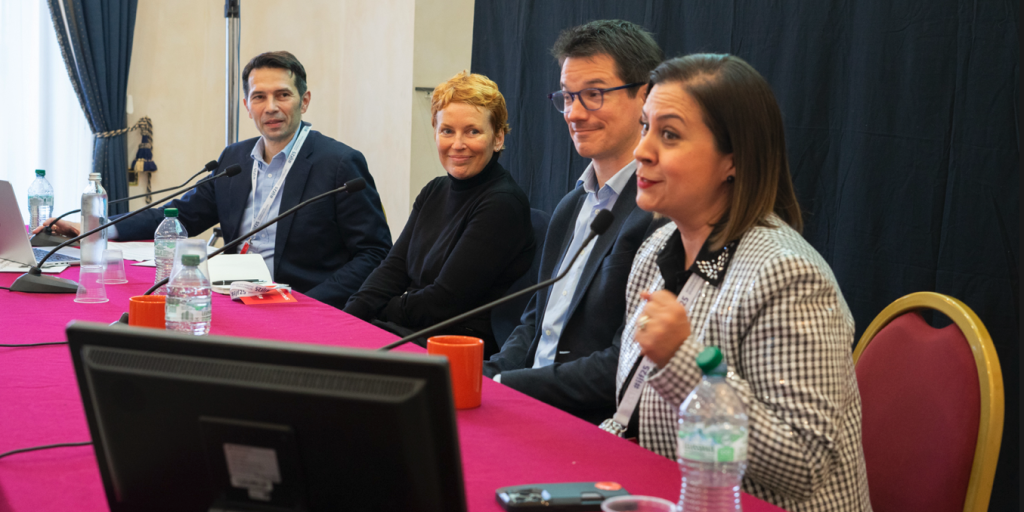General Intelligence Law Amendment Act adopted; still ‘deeply flawed’
ILLUSTRATION: Al Jazeera/2015
Joint media release from the
Campaign for Free Expression
and Intelwatch
Despite important gains, the new General Intelligence Laws Amendment Bill (GILAB) fails to safeguard against a second state capture.
On Tuesday, 26 March 2024, Parliament’s National Assembly (NA) adopted GILAB. The Bill will now proceed to the National Council of Provinces (NCOP) for further consideration.
However, as this is a Section 75 bill (an ‘ordinary Bill not affecting the provinces’), the NCOP’s concurrence is not required for the Bill to be passed on to the President to sign into law.
This third iteration of the Bill has improved on the first two versions (also see here), but still fails to address its stated aim: to rectify the legal conditions that enabled deeply rooted malfeasance within the State Security Agency (SSA), and contributed significantly to intelligence services interfering in politics and enabling state capture. (This is despite multiple submissions from civil society carefully detailing how GILAB could be improved.)
While GILAB no longer contains a broad provision that would have allowed intelligence services unfettered powers to vet any person or organisation of their choosing (including non-profits and churches), major problems remain
Security vetting
The omission of the draconian vetting provision is a victory for civil society. However, the Bill still allows for the vetting of persons who have access to critical infrastructure.
This means intelligence services could legally target SABC journalists for vetting. This threatens journalistic independence and source confidentiality. To rectify this, the Bill should have made explicit that SABC journalists must be exempt from the vetting provisions.
Mass interception of communications
GILAB improves upon its previous versions with regard to the regulation of mass interception.
Intelligence services must seek approval from a judge to conduct mass interception, and that judge must be appointed by the President in consultation with the Chief Justice. (This provision, however, only adequately promotes judicial independence if it means that the Chief Justice must concur with the President in order for a judge to be appointed.)
Additionally, GILAB now includes more stringent controls over data collected by the National Communications Centre (NCC), and clearly recognises the safeguards of the Protection of Personal Information Act (POPIA).
The NCC judge must also take into account international legislation.
However, the details of how mass interception will be conducted and how these processes will safeguard against abuses will only be established through additional regulations.
Read ‘Media and the law: legislation that affects journalists’, here
In this instance, we call on authorities to ensure that such regulations are gazetted in draft form and released for public comment. We also call on authorities to gazette in full the final regulations.
A failure to address theft from and mismanagement of secret slush funds
GILAB still fails to give sufficient powers to the Auditor-General (AG), the Inspector-General of Intelligence (IGI), and Parliament’s Joint Standing Committee on Intelligence (JSCI) to oversee the secret expenditures from the services’ so-called slush fund.
It is thus likely, if not inevitable, that the intelligence services will continue to receive qualified audits from the AG, with no real accountability to the public.
The Office of the Inspector-General of Intelligence
While the IGI can appoint staff and determine the organisational structure of their office, they still cannot make legally binding recommendations. This means that the IGI’s investigations into malfeasance within the services are unlikely to have significant consequences for members of the services.
We are also deeply disappointed by the fact that the much-needed position of a deputy IGI was not provided for in GILAB.
This means that, should the IGI’s term come to an end, or should they vacate their office for any other reason, there will be a power vacuum (as was the case during the state capture era).
Broad definitions
While this Bill presented a golden opportunity for lawmakers to narrow down broad definitions, in particular the definitions of ‘national security’ and ‘national security threat’, these core concepts remain vague and open to abusive interpretations by the intelligence services.
It is, however, commendable that the particularly ill-defined term, ‘potential opportunity’, which was contained in older versions of the Bill, has been omitted from the version approved by the NA.
Despite shortcomings, GILAB does succeed in improving on current legislation in select areas.
The SSA will be split into separate departments. This is a crucial reversal of the 2009 Presidential Proclamation that consolidated the domestic and foreign intelligence branches into a single agency under a super directorship
The Bill now also allows for greater – although not sufficient – independence of the National Intelligence Coordination Committee (NICOC). NICOC plays a crucial role in the services’ effective functioning by ensuring that intelligence departments adhere to prescripts on intelligence coordination.
Despite such gains, the majority of our primary concerns remain unaddressed.
As it stands, GILAB lacks the safeguards required to ensure that South African intelligence services adhere to the White Paper on Intelligence, the findings of the 2018 High Level Review Panel’s investigations into the SSA, and the Zondo Commission findings on malfeasance within the SSA.
- See the media release as originally published, here
- For more information contact:
Anton Harber (Campaign for Free Expression): 083 303 9497
Heidi Swart (Intelwatch): 082 253 1182




